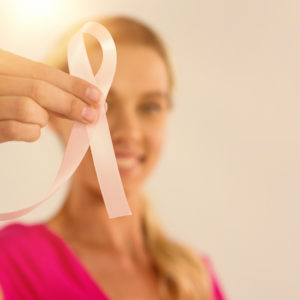October is National Breast Cancer Awareness Month, which has breast cancer screening advocates in New Hampshire focusing public attention on how to recognize and address the disease.
Nancy Ryan is president of the New Hampshire Breast Cancer Coalition (NHBCC), a statewide volunteer advocacy organization. Ryan told NH Journal there is a range of resources available to help both New Hampshire women and men deal with breast cancer.
Ryan said hospitals and breast clinics in the state offer screening, diagnosis, treatment, and follow-up appointments. Many hospitals also have breast cancer support groups for newly diagnosed women as well as woman who have advanced, metastatic, Stage IV breast cancer.
According to Ryan, an estimated 1,260 women in New Hampshire will be newly diagnosed with breast cancer and 170 will die in 2017. The disease is considered ‘multifactorial,’ which means there are a number of risk factors that can influence whether a woman will develop breast cancer. This includes age, since the median age for a breast cancer diagnosis is 62. Ryan said more research is necessary to determine which ductal carcinoma in situ, the abnormal cells which have not invaded the surrounding tissue, will progress to requiring cancer treatment, and which can be left alone.
“In general, it is important to lead a healthy lifestyle including diet and exercise and to discuss with your health care provider the best plan for screening,” Ryan said. “The signs of breast cancer can include, but are not limited to, noticing an unusual lump, nipple discharge, and dimpling in the skin. Even if a woman has recently had a normal mammogram and notices an abnormality shortly afterward, it is important to visit your health care provider.”
Ensuring access to breast cancer screenings is a crucial aspect to making progress on the disease. Some states have passed laws to expand breast cancer screening options in recent years. Earlier this year, New York state enacted a law which removes annual deductibles, co-pays, and co-insurances for women with state health insurance. The law also requires employers to provide four hours to employees each year for breast cancer screenings, with hospitals extending their screening hours, as well.
In New Hampshire, individuals with health insurance can secure access to screening and treatment options, though it is more difficult to ensure access to screenings in some areas of the state, such as the North Country. NHBCC is working to enhance accessibility for both rural communities and low-income women.
The Breast and Cervical Cancer Screening Program, a collaboration between the state and federal government, offers free breast and cervical cancer screening to eligible, low-income women in New Hampshire through the “Let No Woman Be Overlooked” campaign. If a woman is found to have breast or cervical cancer through the program, continued treatment is guaranteed through the Breast and Cervical Cancer Treatment Act of 2000.
NHBCC also operates the Support Services Fund, which offers financial support for patients who are struggling to pay daily expenses in the face of diagnosis, treatment, and recovery. Patients fill out a one-page form with their social worker, send it to the organization, and NHBCC pays the expense directly. Information about the Support Services Fund can be found on the NHBCC web site.
NHBCC is soliciting donations for the Support Services Fund throughout the month, including check-out collections at New Hampshire Hannaford Supermarkets and donation discounts at La-Z-Boy Furniture stores. The organization’s efforts are not limited to October, as NHBCC participates in health fairs throughout the year to raise awareness and offer support. NHBCC also works with the National Breast Cancer Coalition on issues surrounding federal funding for research, public policy, and access to quality health care for all.
Jennie Halstead is executive director of the Portsmouth-based nonprofit My Breast Cancer Support. The organization offers support to approximately 1,000 people in the Seacoast region through its programs and planned retreats for women affected by breast cancer. My Breast Cancer Support assists with daily tasks complicated by the disease and provide financial support for families.
Halstead told NH Journal the organization provides 100 grants per year, equaling $1,000 each. The organization, which relies on donations from individuals and local businesses, has seen an increase in requests for assistance by nearly 40 percent in recent years, according to Halstead. As a breast cancer survivor, she said an important aspect of the organization’s work is to ensure individuals undergoing treatment realize they are not alone.
“I had great health insurance and a great support system when I was going through breast cancer treatment, and it still was terrifying,” Halstead said. “People are aware of how terrifying and prevalent it is. Everyone knows someone who’s gone through breast cancer.”



